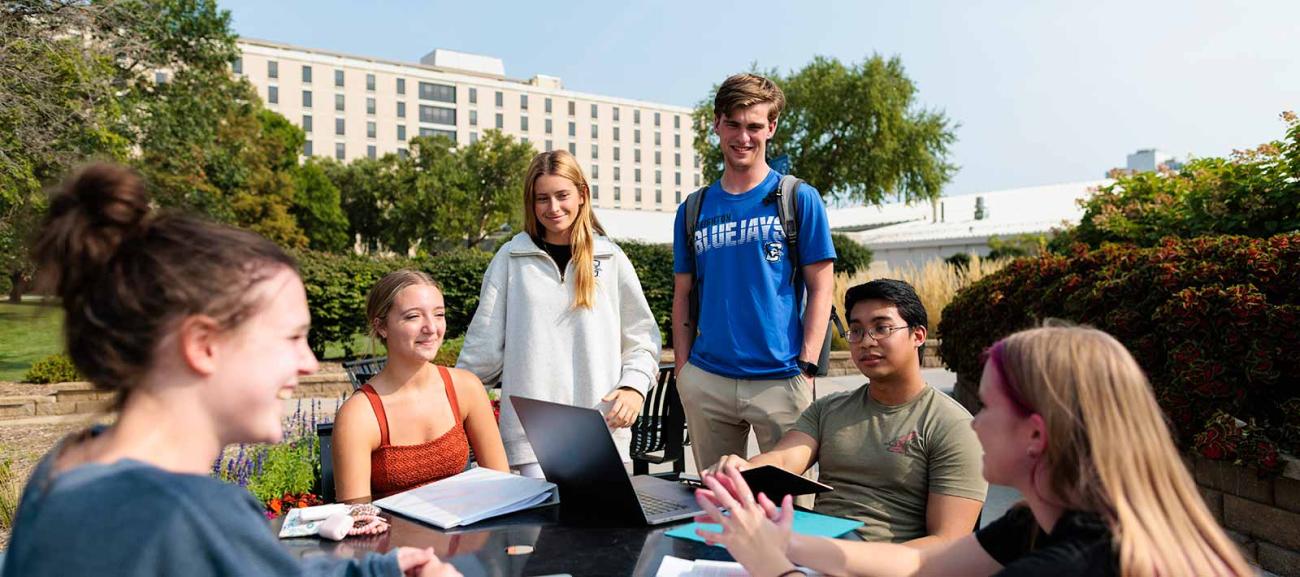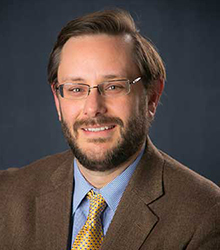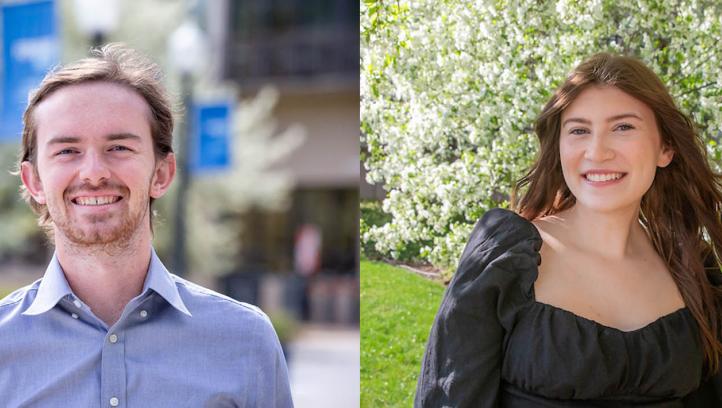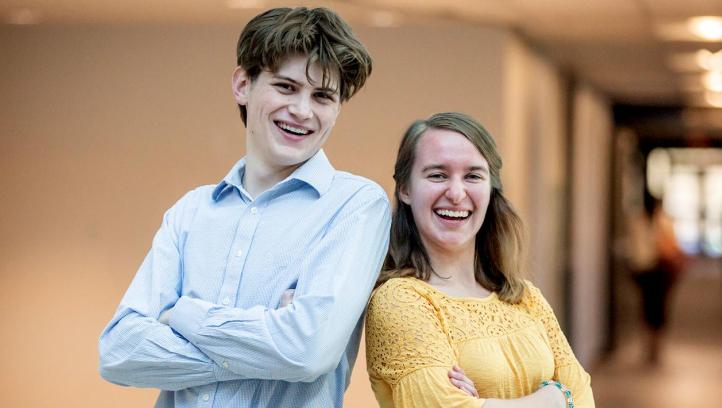
‘Lab’ seeks to make Creighton a leader in humanities research

As an example of a “lab” for humanities research, Creighton students (pictured above outside the Skutt Student Center) can meet anywhere to discuss projects.
Creighton’s sweeping commitment to interdisciplinary education includes a new humanities “lab” that will encourage students and faculty to make Creighton “the shining beacon” of humanities research within the Jesuit university network.
Zachary Smith, PhD, associate professor of theology, says the “lab” terminology is a nod to Creighton’s prominence in the medical and health sciences, where physical laboratories are an iconic presence.

The humanities lab, he says, like similar bodies in universities across the nation, is a conceptual space that describes the convening of historians, philosophers, theologians, linguists, literatists and other humanists to pursue common research. There is no designated lab space — participants may gather anywhere — and papers, discussions and sharing of research will stand in for Bunsen burners and Petri dishes.
Student-involved research projects built around a common theme will be guided by faculty. The projects will produce papers and presentations that reflect knowledge of subject matter and familiarity with methods of inquiry.
“As we come up with projects, we will bring on board individuals from different disciplines,” Smith says. “As humanists, we tend to have these tiny monastic cells we call our offices where we do our thing.
“The idea of a lab is to break out of that cell, to bring all of us together so that we can achieve not just better research outcomes but achieve funding that will help us achieve those better outcomes and attract students by becoming the shining beacon of humanities research in the AJCU (Association of Jesuit Colleges and Universities).”
The lab is an initiative of Creighton’s Kingfisher Institute, which seeks to produce professional graduates who address complex challenges with responses guided by the humanities.
Smith says it will build on Creighton’s commitment to undergraduate research already represented by such bodies as the Kripke Center and the Center for Undergraduate Research and Scholarship.
He is joined in administering the lab by Surbhi Malik, PhD, associate professor of English, who says the lab will enhance the ability of humanities professors to earn research grants.
“We have zero money available to do this, but we certainly don’t have zero resources,” she says. “There are other sorts of resources. Workshops, for example, meaningful discussions, productive collaborations.
“We also want to apply for external grants, maybe an NEH grant, for example, which would be a dream. The existence of this lab will absolutely enhance our ability to apply for grants like that.”












